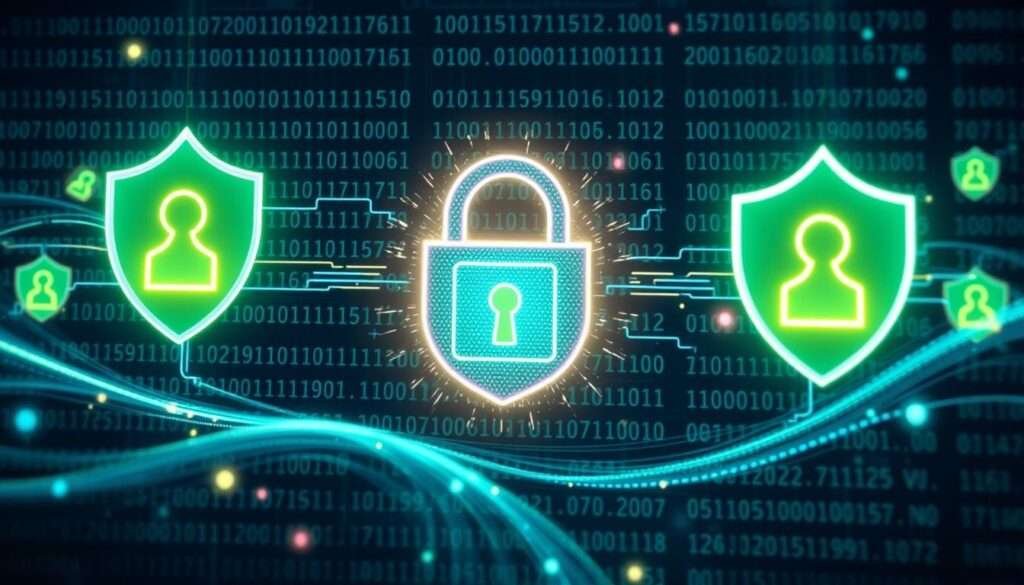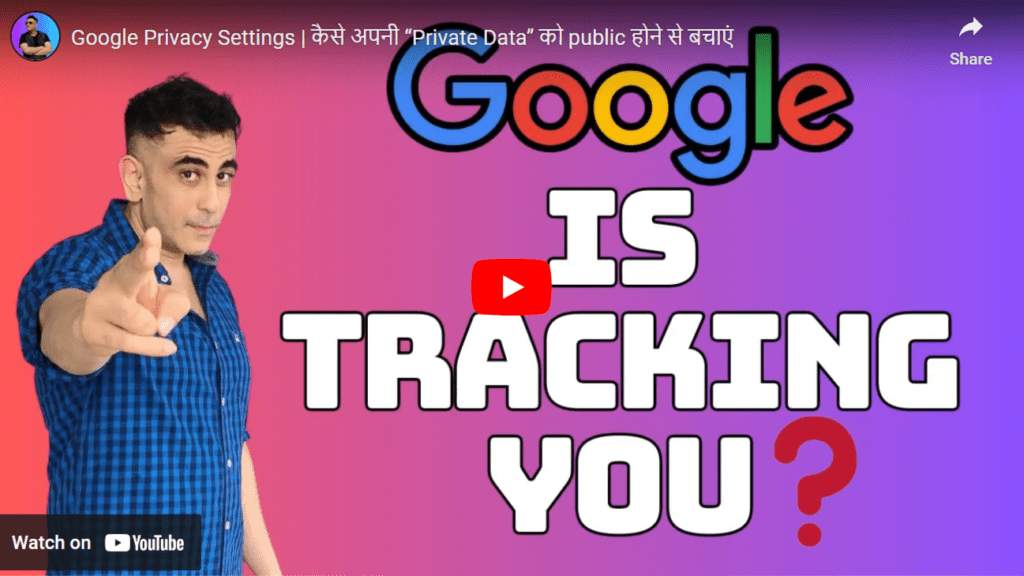
In today’s digital world, keeping our data safe is key. We share more of our sensitive info online, making data privacy more important than ever. This article will explore why data privacy matters, the dangers of data breaches, and how to keep our digital selves safe.
Key Takeaways
- Data privacy is a fundamental right that empowers us to control our personal information.
- Data breaches can have far-reaching consequences, including identity theft, financial fraud, and reputation damage.
- Understanding and complying with data privacy regulations, such as GDPR, is crucial for safeguarding our data.
- Implementing best practices, including data anonymization and privacy by design, can enhance our data protection efforts.
- Embracing a privacy-conscious mindset is essential in navigating the complexities of the digital landscape.
The Importance of Data Privacy in the Digital Age
In today’s world, our data is very valuable. It shows what we like to browse and our financial details. This data can be misused, leading to identity theft and fraud.
Data Privacy: A Fundamental Right
Technology is advancing fast, and so is the sharing of our data. We have the right to privacy and to decide how our info is used. Keeping our data safe is key to our freedom in the digital world.
The Risks of Data Breaches
Data breaches can cause big problems. They let hackers steal our identities and money. This can lead to financial loss and damage to our credit scores.
Keeping our data privacy and information security safe is crucial. We must understand online privacy and cybersecurity. Knowing about data governance and privacy regulations helps protect our info.
“Data privacy is not just a luxury, it’s a fundamental human right in the digital age.”
Data Privacy: Safeguarding Your Personal Information
In today’s digital world, keeping our data safe is key. As we explore the internet, we must protect our sensitive info from threats. Data protection and governance are vital for our privacy and security.
Using strong passwords and two-factor authentication is a smart move. These steps help block unauthorized access to our accounts and data. Also, privacy by design is becoming more popular. It means making privacy a part of digital product and service development from the start.
Data anonymization is another crucial part of data privacy. It removes personal info from data sets, keeping our privacy safe while still using data insights. This way, our info stays secure when we use online services.
“Protecting our personal data is not just a matter of convenience, but a fundamental right that we must safeguard in the digital era.”
As we deal with the digital world, staying alert and active in data privacy is key. By using these strategies and promoting data governance, we can keep our info safe. This way, we can enjoy our digital lives while protecting our privacy.
 A digital lock symbol surrounded by flowing binary code, ethereal shields made of light protecting glowing personal data icons, a serene blue and green color palette, futuristic technology elements, and abstract representation of data privacy and security.
A digital lock symbol surrounded by flowing binary code, ethereal shields made of light protecting glowing personal data icons, a serene blue and green color palette, futuristic technology elements, and abstract representation of data privacy and security.
| Strategies for Data Privacy | Benefits |
|---|---|
| Strong Passwords and Two-Factor Authentication | Enhance account security and deter unauthorized access |
| Privacy by Design | Integrate data privacy into the development of digital products and services |
| Data Anonymization | Protect individual privacy while leveraging valuable data insights |
Privacy Regulations and Compliance
In today’s digital world, governments have set up data privacy laws to protect our info. We need to know these rules, like the GDPR, to keep our data safe.
GDPR and Other Data Privacy Laws
The GDPR started in 2018 and has strict rules for handling personal data. It affects any company that deals with EU residents’ info, no matter where they are. Other places, like the US and India, have their own laws too.
These laws say companies must get clear consent before using our data. They also need to be open about how they use it and keep our info safe. Not following these rules can lead to big fines, showing how serious privacy regulations and GDPR compliance are.
Best Practices for Protecting Your Data
We also play a big part in keeping our data safe. Here are some tips:
-
- Learn about your rights under data privacy laws and how your info is used.
-
- Think twice before sharing personal info online and check privacy policies.
-
- Use strong passwords, enable two-factor authentication, and keep your software and devices updated.
-
- Watch your accounts and financial statements for odd activity and report any breaches or identity theft.
By knowing about privacy laws and taking steps to protect our data, we can confidently move through the digital world. This way, we keep our right to privacy safe.
Navigating the Complexities of Data Privacy
In today’s digital world, data privacy is complex. There are many rules and new tech to keep up with. We need to know about data governance, data protection, and information security. This helps keep our online privacy and cybersecurity safe.
Learning about data governance frameworks is key. These frameworks tell us how to manage and protect sensitive info. By following these guidelines, we can keep our data privacy safe.
It’s also vital to have strong information security measures. This means using strong passwords, enabling two-factor authentication, and keeping our devices and software up to date. This helps prevent data breaches and other cyber threats.
Keeping up with the latest in online privacy and cybersecurity is important too. Being proactive helps us understand new challenges. This way, we can keep our info safe from new threats.
| Key Considerations for Navigating Data Privacy | Strategies for Implementation |
|---|---|
| Understanding data governance frameworks | Aligning personal practices with industry best practices |
| Implementing robust information security measures | Utilizing strong passwords, enabling two-factor authentication, and regularly updating devices and software |
| Staying informed about the latest trends and developments in online privacy and cybersecurity | Proactively adapting strategies to address evolving challenges |
By tackling data privacy with a full plan, we can protect our info. This makes sure our data governance, data protection, and cybersecurity are up to date with the digital world.

A digital landscape representing data privacy, featuring a large, translucent padlock intertwined with flowing binary code, surrounded by abstract representations of clouds and shield icons, with a soft blue and green color palette conveying security and technology.
“In the digital age, the protection of personal data is not a luxury, but a fundamental right.”
Empowering Individuals: Taking Control of Your Data
In today’s digital world, keeping our data safe is key. We can protect our digital selves and control our data use. By knowing our rights, using privacy tools, and pushing for privacy by design, we can handle data privacy and data protection better.
First, we need to know our rights online. Laws like the GDPR in Europe give us the power to see, fix, and delete our data. Knowing these rights lets us manage our data better and ensure it’s used correctly.
We can also use privacy-enhancing technologies to protect our data. Encryption, data anonymization, and VPNs can keep our info safe from hackers. Using these tools helps us guard our digital selves.
Also, we should push for more privacy by design in what we use online. By asking companies to focus on data privacy and security, we help make the internet safer. This effort can lead to a safer digital world for everyone.
“The right to privacy is not negotiable. It is a fundamental human right that must be protected in the digital age.”
We all have the power to protect our digital identities and data. By knowing our rights, using privacy tools, and supporting privacy by design, we can make the digital world safer and more private.
Embracing a Privacy-Conscious Mindset
In today’s digital world, being aware of data privacy is key. By being mindful of privacy, we help make the internet safer. We protect our personal information security and support online privacy and cybersecurity for everyone.
Building a strong data governance starts with knowing why data protection matters. As we explore the digital space, we must value our data and its risks. Staying updated on data privacy helps us protect ourselves and our families.
Being privacy-aware also means joining the conversation on data privacy rights. Keeping up with data privacy laws, like GDPR, helps us push for better data protection. Together, we can build a safer, more private digital world.

